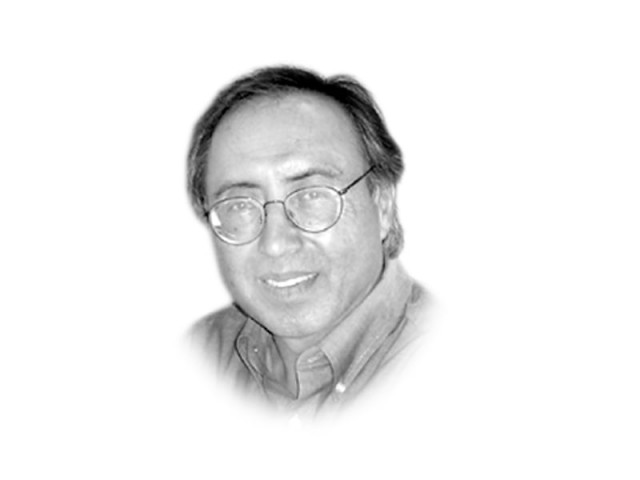Who is threatening democracy?
Propaganda, conspiracy and victimisation are the magic words apologists of corrupt rulers use to 'clear' their names

The writer is a professor of political science at LUMS
The simplest and ever-ready answer to this is that there is and always has been a civilian-military imbalance in power, and whenever the military leadership wishes to take over, it can do so. While the push factors in terms of the military’s institutional power and multiple strands of theorising have dominated this subject in academia, as well as in social and political discourses, it is unfashionable to look at the problems of pseudo-democracy. This term primarily refers to the absence of substance in any democratic rule anywhere in the world. What it means is that ‘democratic’ elites have established an effective political network of electable families of a dynastic character and they essentially rule to serve their individual or group interests. The people who elect them, the country, the state and the national or public interest mean very little to these ‘leaders’.
In both the philosophical and practical sense, democracy is about serving the people, understanding their true aspirations and responding to them as effectively as possible. In conditions like ours, it boils down to enacting laws, building institutions, generating resources, and launching massive programmes of social and economic development to benefit all in society. Actually, democracy encompasses two-way traffic — people give the right to rule to elected representatives with the condition that they would serve them and the collective national interest. The problem of weak democracies, like Pakistan — which face the serious challenge of consolidation — is that the ‘representatives’ have repeatedly failed to deliver on their part of the political covenant or social contract. There is no need here to refer to the massive corruption, wrong priorities and huge plunder and wastage of national resources of current and previous governments. Referring to these malpractices is not just ‘propaganda’, ‘conspiracy’ or ‘victimisation’ — the three magic words that the apologists and corrupt ones use often to ‘clear’ their names. Every ‘democratic’ regime has pulled the country down, and as low as it could, including the present one.
The violation of the social contract by the ruling dynasties and the cliques around them has produced distrust of democracy in the country. The disillusioned and disaffected populations have developed no stake in democracy; if there is any, it is of the ruling groups only. Today, no party in the country enjoys genuine and widespread popular support. The oft-repeated apologetic expressions, like ‘we have inherited all the problems’ or that ‘there are too many challenges’ or that ‘our predecessors did very little’ now ring very hollow. Each major party has enjoyed three tenures in power, which means that they had plenty of time and resources at their disposal. They used both time and resources to enrich themselves and leave the debris of their corruption on the hapless population. Will people care for a democracy which provides no justice, accountability, rule of law or effective governance in any sector of the state? Democracies develop, sustain and endure when the people at large have a stake in them. We have yet to reach that point.
Published in The Express Tribune, September 23rd, 2015.
Like Opinion & Editorial on Facebook, follow @ETOpEd on Twitter to receive all updates on all our daily pieces.















COMMENTS
Comments are moderated and generally will be posted if they are on-topic and not abusive.
For more information, please see our Comments FAQ